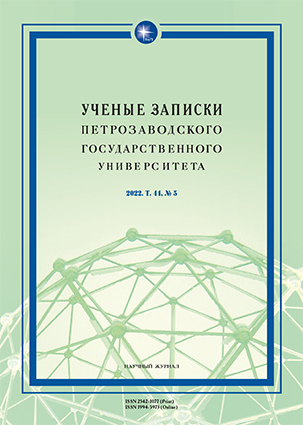РОССИЙСКИЙ УНИВЕРСИТЕТ СЕРЕДИНЫ XX ВЕКА
КАК КОММУНИКАЦИОННОЕ ПРОСТРАНСТВО В КНИГЕ И. П. ЛУПАНОВОЙ
«МИНУВШЕЕ ПРОХОДИТ ПРЕДО МНОЮ»
RUSSIAN UNIVERSITY OF THE MID-TWENTIETH CENTURY
AS A COMMUNICATION SPACE IN IRINA LUPANOVA’S BOOK
THE PAST IS PASSING BEFORE ME
Author(s): Svetlana Nikolaevna Filimonchik Subject(s): History, Anthropology, Education
Published by: Петрозаводский государственный университет
Keywords: communication; Faculty of Philology at Leningrad University; Faculty of History and Philology at Petrozavodsk University; Chair of Literature; dissertation defense; M. K. Azadovsky; V. Ya. Propp;
Summary/Abstract: The university develops in the flow of social interactions, and its success is closely related to its corporate communicative culture. Philologist I. P. Lupanova (1921–2003), one of the most respected professors at Petrozavodsk State University from the 1950s to the 1970s, discussed various communication practices among the university staff in her autobiographical book written during the last years of her life. The book included her memoirs, a diary, and excerpts from letters, all of which contributed to the disclosure of the author’s individual vision and the changing angle of problems’ analysis. This article presents an analysis of the material in Lupanova’s book related to the communication patterns within the university. When approaching the book, this article uses the critical historical method, the problem-based method, and the hermeneutic approach. Lupanova’s book emphasizes the crucial role of teacher-student interactionwithin the university. Famous scientists M. K. Azadovsky and V. Ya. Propp, who were Lupanova’s supervisorsat Leningrad State University, are shown in the book, above all, as talented teachers. The memoirist highly appreciatestheir severe exactingness and paternal care over their students. Lupanova views the ability to combine these qualitiesas the basis for pedagogical art. While working at Petrozavodsk University, she strove to follow the pedagogicalprinciples of her teachers. The memoirs demonstrate that the “anti-cosmopolitan campaign” had a heavy impact notonly on the fates of the persecuted teachers, but also on the lives of their students tormented by impotence and guilt.Through comprehending these events, Lupanova came to reject repressive methods and formed her inner independence.Lupanova outlined the possibilities of the university’s collegiate bodies for providing support and ensuring the professionalgrowth of teachers from the 1950s to the 1970s. She showed that in the Brezhnev era the personnel policy at theuniversity remained under the strict control of the ruling party. Dissent and unwanted contacts were suppressed throughthe administration and party organizations of the faculties, and the socio-demographic composition of the employeeswas monitored.
Journal: Ученые записки Петрозаводского государственного университета
- Issue Year: 44/2022
- Issue No: 5
- Page Range: 54-63
- Page Count: 10
- Language: Russian

